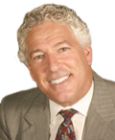Narcissism
Steve Jobs EI Profile: Technical Giant or Narcissistic Tyrant?
Steve Jobs EI Profile: Technical Giant or Narcissistic Tyrant?
Posted January 11, 2012
Steve Jobs EI Profile: Technical Giant or Narcissistic Tyrant?
Jobs was an unusual combination of both. In the last blog of Steve Jobs Superman Syndrome, we looked at his Emotional Intelligence competencies of Inspirational Leadership, Confidence, Change Leadership, and introduced the grandiosity of the Narcissistic Personality Disorder. Here I will explore in more detail his personality make-up that drove him and take some liberties in exploring a psychological diagnosis.
We have an incredible window into Jobs' life which was opened wide and made visible by Walter Isaacson's book, Steve Jobs. Isaacson has written about Jobs, "Driven by demons, Jobs could drive those around him to fury and despair. But his personality and products were interrelated , just as Apple's hardware and software tended to be, as if part of an integrated system. His tale is instructive and cautionary, filled with lessons about innovation, character, leadership, and values."
As a psychologist, I was trained to look at specific behaviors and characteristics that make up person's health and psychological disorders. I would interview the person and family members to see if there is a consistent pattern of behavior to make a diagnosis. This is not a clinical diagnosis as I have not interviewed Jobs, it is only exploratory in nature. To better understand the complexity of Job's personality though,we have the benefit of Isaacson's book which has over 40 interviews with Jobs over two years and interviews with more than hundreds colleagues, family members, friends, adversaries and competitors.
The Diagnostic Statistical Manual or the DSM IV is the reference for these mental disorders, which psychologists and psychiatrists use to make a diagnosis. A Personality Disorder is long standing pattern of behavior that begins in early adulthood. It is deviant or abnormal behavior that the person doesn't change even though it causes upsets and trouble with other people at work and in personal relationships. It is labeled an Axis II disorder and often harder to diagnose than Axis I disorders such as anxiety, depression or phobias.
We all know people with personality disorders. They are the ones that seem odd and have more pronounced features in certain characteristics, than the average person. Often they are very functional and even successful in their day to day world. You may do some of these behaviors occasionally, like a flickering light but to have the diagnosis it is a constant and bright beam.
A Narcissistic Personality Disorder is a pervasive pattern of grandiosity (in fantasy or behavior), need for admiration, sense of entitlement, and lack of empathy, beginning by early adulthood and present in a variety of contexts. When we look at people we have heard of with a narcissistic personality disorder, sadistic leaders come up like Hitler, Stalin, Saddam Hussein or celebrities like Donald Trump and Madonna. Chip Conley in his new book Emotional Equations, gives narcissism an intriguing formula: (Self-Esteem)2 X Entiltlement.
In the DSM IV, there are 9 behaviors that a person needs to exhibit a long pattern of behavior of at least five of these to be diagnosed with Narcissistic Personality Disorder. For the DSM V these are currently being reevaluated. As we know more about Jobs and what was so closely guarded or private about him is now more public by Isaacson's book, so somee inferences can be made. We now see the canvas of Jobs' life getting more colored in.
To be a genius and extraordinary as Jobs was and to influence the world as he did with Apple products and Pixar Animation you can't be an ordinary Joe. You have to be different, unique and constantly pushing, cajoling, stretching others to achieve your vision. The casualties of bruised egos, his public ridicule, unfathomable insensitivity and overt manipulation of others to achieve his goals are not an example of a high emotionally intelligent leader. The extent of his disorder was most likely blind to him and muted by his accomplishments and adoration from others. People with a narcissistic personality disorder usually do not seek treatment as they don't perceive they have a problem.
Look at these narcissistic behaviors and Jobs' examples below from Isaacson and others and see what you think in regard to the features. Of the 9 needed for the diagnosis, Jobs seems to meet 6 of them clearly. Here I will explore two of the features and examples and the rest in the next blog entry.
The individual
(1) Has a grandiose sense of self-importance (e.g., exaggerates achievements and talents, expects to be recognized as superior without commensurate achievements)
Peter Elkind in a 2008 Fortune magazine article said "Jobs is also among the most controversial figures in business. He oozes smug superiority, lacing his public comments with ridicule of Apple's rivals, which he casts as mediocre, evil, and - worst of all - lacking taste. No CEO is more willful, or more brazen, at making his own rules, in ways both good and bad. As Apple's creator-in-chief, he has listed himself as "co-inventor" on 103 separate Apple patents, everything from the user interface for the iPod to the support system for the glass staircase used in Apple's dazzling retail stores."
Another example of his self-importance and exaggerating his self-importance was his practice of taking credit for others achievements. An example in Isaacson's book is from Bruce Horn a programmer bought over from Xerox Parc, "One week I'd tell him about an idea that I had and he would say that is crazy. The next week, he'd come and say, 'Hey I have this great idea-and it would be my idea! You'd call him on it and say, Steve, I told you that a week ago' and he'd say, yeah, yeah, yeah and just move right along."
(2) Is preoccupied with fantasies of unlimited success, power, brilliance, beauty, or ideal love.
Jobs seems to have as his preoccupation and ideal love in the most perfect of products on all levels. He wanted to "make a dent in the universe" and had a clear vision of just how do it and did it. Again pointing to his power of vision and creating products that people craved and waiting for hours in the cold to be the first to buy them.
Job's enormous drive could be interpreted as filling his "unwanted void" of adoption with the overcompensation of perfect products that everyone wants, thereby wanting him. He embodied his products more than any other CEO we know. His touch was on every detail. If you love your iPod, iPhone, iPad you love Steve Jobs. We know the concept of being abandoned by his parents plagued him when he was a young adult as many of his friends then spoke about his preoccupation of speaking about it and trying to come to grips with it.
Jobs felt his ideas were right as they often were. Even if they weren't he could distort the facts to make them fit his ideal vision or his "Reality Distortion Field" as Apple employees called it.
In Isaacson book he has a chapter on the Reality Distortion Field which will yield more clarification to Jobs' Narcisisstic Personality Disorder which I will cover in the next blog with more examples from his history.




